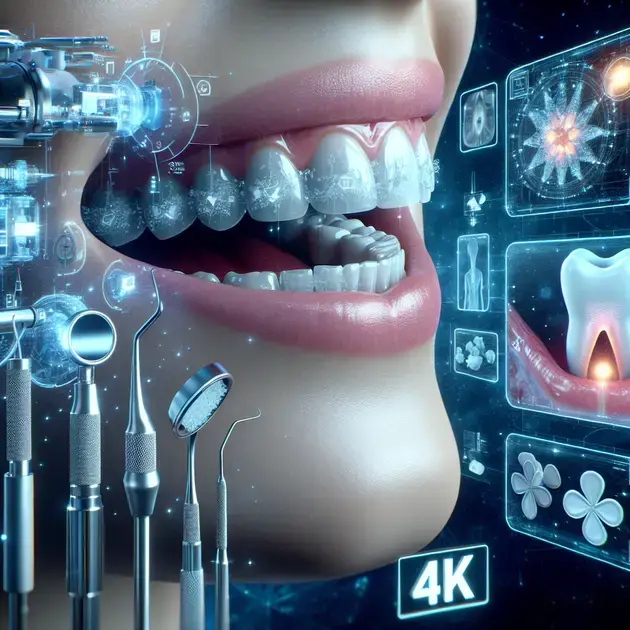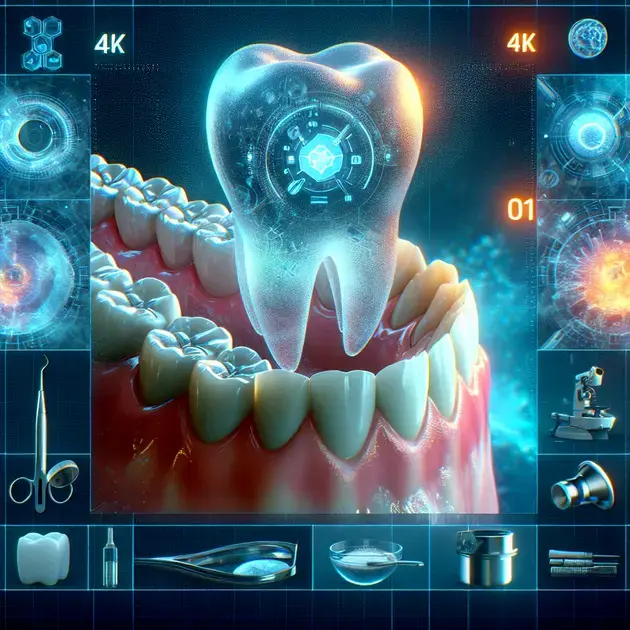Periodontitis is a common dental condition that affects a large number of people worldwide. It is characterized by inflammation and infection of the gums, which can lead to serious complications if left untreated. In this blog post, we will discuss the role of medication in managing periodontitis and its importance in the treatment process.
Recent studies have shown that certain medications can play a crucial role in controlling the progression of periodontitis. From antibiotics to specialized mouthwashes, these medications can help reduce inflammation, fight infection, and promote overall oral health. Understanding the role of medication in managing periodontitis is essential for both patients and healthcare professionals in achieving successful treatment outcomes.

The Impact of Medication on Periodontitis Treatment
Medication plays a crucial role in the treatment of periodontitis, a serious gum infection that damages the soft tissue and destroys the bone that supports your teeth. The right medications can help control the infection, reduce inflammation, and prevent further complications. Here is a step-by-step guide on how to make the most of medication in periodontitis treatment:
1. Consult Your Dentist or Periodontist:
The first step is to consult with your dentist or periodontist to assess the severity of your periodontitis and determine the most appropriate medication. Your healthcare provider will prescribe antibiotics, antimicrobial mouth rinses, or other medications based on your condition.
2. Follow the Prescribed Dosage:
It is essential to follow the prescribed dosage of medication diligently. Skipping doses or stopping medication prematurely can lead to treatment failure and antibiotic resistance. Set reminders on your smartphone or use medication tracking apps like Medisafe to stay on track.
3. Maintain Good Oral Hygiene:
Medication is most effective when used in conjunction with good oral hygiene practices. Brushing twice a day, flossing regularly, and using an antiseptic mouthwash can help control the infection and promote healing. Apps like Oral-B and Colgate can provide guidance on proper oral care techniques.
4. Monitor and Report Any Side Effects:
Some medications may cause side effects such as gastrointestinal issues or allergic reactions. Keep a log of any symptoms you experience while taking medication and report them to your dentist promptly. Use health tracking apps like Symple to monitor and document your health changes.
5. Schedule Follow-Up Appointments:
Regular follow-up appointments with your dentist or periodontist are vital to monitor the progress of your treatment. During these visits, discuss any concerns or improvements you have noticed since starting the medication. Utilize appointment scheduling apps like Zocdoc or Practo to book and manage your dental visits.
Exploring Different Types of Medications for Periodontitis
There are various types of medications used in the treatment of periodontitis, each targeting different aspects of the infection. Understanding the different categories of medications can help you make informed decisions about your treatment plan. Here is a detailed exploration of the various types of medications for periodontitis:
1. Antibiotics:
Antibiotics are commonly prescribed to combat the bacterial infection responsible for periodontitis. They can be taken orally or applied directly to the infected gums. Apps like Epocrates or Drugs.com provide information on different antibiotics, their dosages, and potential side effects.
2. Antiseptic Mouthwashes:
Antiseptic mouthwashes containing chlorhexidine or essential oils can help reduce plaque and bacteria in the mouth. These mouthwashes are often recommended as adjuncts to regular brushing and flossing. Look for recommendations on mouthwash products on the ADA Seal app or the Oral Health Foundation website.
3. Anti-inflammatory Drugs:
Anti-inflammatory drugs such as ibuprofen or corticosteroids can help reduce gum inflammation and pain associated with periodontitis. Your dentist may recommend these medications for short-term relief. Websites like WebMD or Mayo Clinic offer detailed information on anti-inflammatory drugs.
4. Bone-Modifying Agents:
In severe cases of periodontitis where bone loss has occurred, bone-modifying agents like bisphosphonates may be prescribed to help regenerate bone tissue. These medications require careful monitoring and specialized instructions. Consult with your healthcare provider or refer to the National Osteoporosis Foundation for more information on bone health medications.
5. Enzyme Suppressants:
Enzyme suppressants can help inhibit the enzymes that break down the gum tissue in periodontitis. These medications are often used in conjunction with other treatments to improve gum health. Stay informed about enzyme suppressants by checking reputable sources like the Journal of Periodontology or the American Academy of Periodontology website.

Exploring Advanced Methods for Gum Inflammation Management
Gum inflammation, also known as gingivitis, is a common oral health issue that can lead to more severe conditions if left untreated. While regular brushing and flossing are essential for preventing gum inflammation, advanced methods can provide additional support for managing this condition. One innovative approach is the use of laser therapy, which can effectively reduce inflammation and promote tissue regeneration in the gums.
Another advanced method for gum inflammation management is probiotic therapy. Probiotics are beneficial bacteria that can help restore balance in the oral microbiome, reducing inflammation and improving overall gum health. Incorporating probiotic-rich foods or supplements into your daily routine can be a natural and effective way to support gum health.
In addition to laser therapy and probiotics, photodynamic therapy is another advanced method for managing gum inflammation. This treatment involves the use of a photosensitive agent that is activated by light to target and eliminate harmful bacteria in the gums. Photodynamic therapy can help reduce inflammation, prevent infection, and promote gum healing.
Overall, exploring these advanced methods for gum inflammation management can provide additional support for maintaining optimal oral health. By incorporating laser therapy, probiotics, and photodynamic therapy into your oral care routine, you can effectively reduce inflammation, support tissue regeneration, and strengthen your gums against future issues.
Enhancing Periodontitis Treatment with Innovative Therapies
Periodontitis is a more severe form of gum disease that can lead to tooth loss and other serious oral health problems if not properly treated. While traditional treatments for periodontitis include scaling and root planing, innovative therapies can enhance the effectiveness of these methods. One such therapy is platelet-rich plasma (PRP) treatment, which involves using a concentration of the patient’s own platelets to promote tissue regeneration and accelerate healing in the gums.
Another innovative therapy for periodontitis treatment is ozone therapy. Ozone is a naturally occurring gas that has antimicrobial properties, making it effective in killing harmful bacteria in the gums. Ozone therapy can help reduce inflammation, eliminate infection, and support the healing process in patients with periodontitis.
In addition to PRP and ozone therapy, guided tissue regeneration is another advanced approach to treating periodontitis. This technique involves using barrier membranes to prevent unwanted tissue growth in areas affected by periodontal disease, allowing the gums to regenerate and heal properly. Guided tissue regeneration can help restore the health of the gums and prevent further damage from periodontitis.
By incorporating innovative therapies such as PRP treatment, ozone therapy, and guided tissue regeneration into periodontitis treatment plans, dental professionals can enhance the effectiveness of traditional methods and improve outcomes for patients with this serious condition.
Innovative Medication Approaches for Optimal Oral Health
Maintaining optimal oral health involves more than just regular brushing and flossing – sometimes, innovative medication approaches are necessary to address specific oral health issues. One such approach is the use of targeted antimicrobial therapy, which involves prescribing antibiotics that specifically target the bacteria causing oral infections. This method can help eliminate harmful bacteria, reduce inflammation, and promote healing in the oral cavity.
Another innovative medication approach for optimal oral health is the use of remineralizing agents. These agents contain minerals such as fluoride and calcium, which can help strengthen tooth enamel, repair minor damage, and prevent decay. Incorporating remineralizing agents into oral care routines can support overall oral health and reduce the risk of cavities.
Furthermore, anti-inflammatory medications can also play a role in maintaining optimal oral health. These medications, such as corticosteroids or nonsteroidal anti-inflammatory drugs (NSAIDs), can help reduce inflammation and pain associated with conditions like gum disease or oral injuries. Using anti-inflammatory medications as directed by a healthcare professional can provide relief and support healing in the oral cavity.
Overall, exploring innovative medication approaches for optimal oral health can provide targeted solutions for specific oral health issues, enhancing the effectiveness of traditional oral care practices and promoting long-term oral health and wellness.
Conclusion
In conclusion, exploring advanced methods for gum inflammation management is crucial in maintaining optimal oral health. While regular oral hygiene practices like brushing and flossing are essential, incorporating innovative approaches such as laser therapy, probiotics, and photodynamic therapy can provide additional support in reducing inflammation, promoting tissue regeneration, and strengthening gum health. These advanced methods offer promising solutions for managing gum inflammation and preventing future oral health issues.
Furthermore, enhancing periodontitis treatment with innovative therapies like platelet-rich plasma (PRP), ozone therapy, and guided tissue regeneration can significantly improve outcomes for patients with this severe gum disease. By complementing traditional treatments with these advanced techniques, dental professionals can effectively promote tissue regeneration, reduce inflammation, and support healing in patients suffering from periodontitis.
Lastly, innovative medication approaches play a vital role in maintaining optimal oral health, beyond regular oral care practices. Targeted antimicrobial therapy, remineralizing agents, and anti-inflammatory medications offer specific solutions for addressing oral health issues, reducing inflammation, and promoting long-term oral health and wellness. By incorporating these innovative medication approaches into oral care routines as directed by healthcare professionals, individuals can enhance the effectiveness of traditional oral care practices and achieve overall improved oral health.



